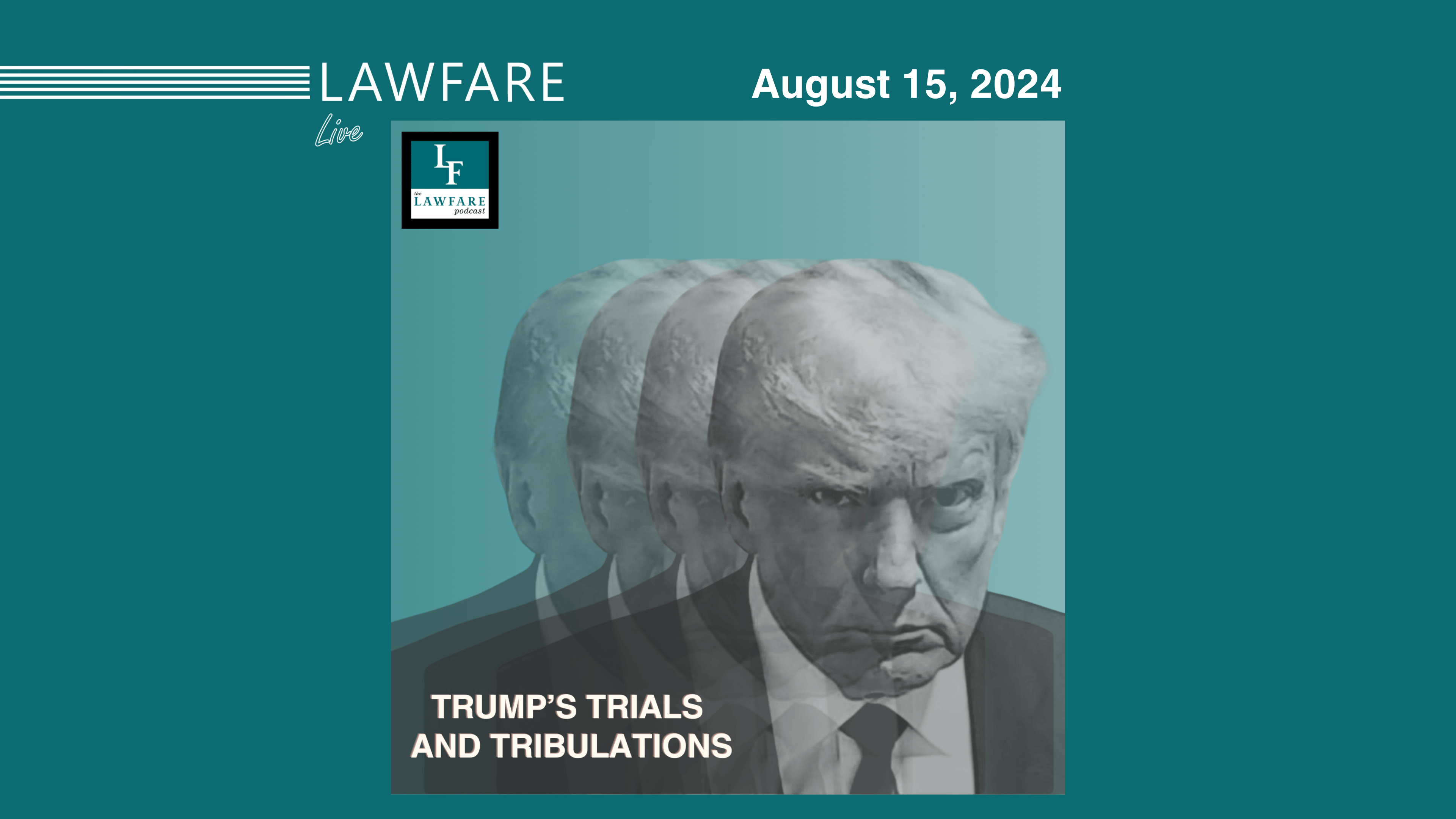Today's Headlines and Commentary
Ben and Wells are sitting pretty at Fort Mead, so the office is eerily quiet and un-stoked today.
The Senate expects (or at least the Democrats in the Senate expect) that they will take up a revised version of the Lieberman-Collins cybersecurity bill by the end of next week.
Published by The Lawfare Institute
in Cooperation With

Ben and Wells are sitting pretty at Fort Mead, so the office is eerily quiet and un-stoked today.
The Senate expects (or at least the Democrats in the Senate expect) that they will take up a revised version of the Lieberman-Collins cybersecurity bill by the end of next week. Senator Lieberman says that he is inclined to include provisions from the Whitehouse-Kyl framework, writes Jennifer Martinez of The Hill.
Julien Pecquet of The Hill brings to our attention the State Department's annual digest of U.S. views on international law in 2011, including its takes on the raid on Bin Laden and the Arab Awakening. Read the full 647-page digest here.
HSBC executives are testifying today at a Senate Homeland Security and Governmental Affairs subcommittee hearing on a report that its U.S. affiliate helped provide cover to illegal money flowing into and out of the U.S. Read the New York Times story here, and get all of the testimony and the 300+ page report here.
The AP brings good news from the International Maritime Bureau on piracy: attacks have fallen 54% in the first half of 2012, with Somali piracy drop-off playing a major role in that reduction.
Speaking of water, it appears that Senate Republicans will be able to defeat the Law of the Sea Treaty that's been percolating in the chamber for quite some time. Carlo Munoz at The Hill reports, and Senator John Kerry is predicting that the oil industry will be responsible for sucking away any semblance of Republican support the treaty might have had, writes Julian Pecquet of The Hill.
Carlo Munoz at The Hill has the details on that additional funding package moving through the Senate for counterterrorism support in Yemen.
Steve Hehn at NPR has this All Things Considered piece on the CIA's venture capital fund, In-Q-Tel.
Micah Zenko writes over at CFR on distinguishing targeted strikes from signature strikes.
In addition to Wells' coverage of the hearings yesterday on Bagram detainees' access to lawyers, Michael Doyle of McClatchy Newspapers provides a story on the hearings as does Warren Richey of the Christian Science Monitor.
Ben Fox of the AP took the time to read through that Pentagon IG report on the allegations that mind-altering drugs were used on Guantanamo detainees during their interrogation. He summarizes:
A newly released Pentagon report says there is no evidence that officials at Guantanamo Bay used mind-altering drugs to interrogate prisoners, but lawyers for men held at the U.S. base in Cuba said Thursday that the findings still raise troubling questions. The report by the Department of Defense Inspector General found that some detainees were interrogated while they were also being treated by doctors at the prison for diagnosed mental conditions and receiving prescribed psychoactive medications.The Hill's Brendan Sasso reports on calls from House Democrats for hearings on law enforcement's use of personal cell phone data. Ben Weiser of the New York Times updates us on the happenings in the case against Mansour J. Arbabsiar, who confessed to participating in a plot to assassinate Saudi Arabia's ambassador to the United States in 2011. In a motion to dismiss, experts for the defense reported that they had diagnosed the defendant with bipolar disorder and say he was likely experiencing a manic episode during his interrogation that led to his confession. For more interesting law and security-related articles, follow us on Twitter, visit the Georgetown Center on National Security and the Law’s Security Law Brief, Fordham Law’s Center on National Security’s Morning Brief, and Fordham Law’s Cyber Brief. Email us noteworthy articles we may have missed at wakeman.lawfare@gmail.com and singh.lawfare@gmail.com.
Raffaela Wakeman is a Senior Director at In-Q-Tel. She started her career at the Brookings Institution, where she spent five years conducting research on national security, election reform, and Congress. During this time she was also the Associate Editor of Lawfare. From there, Raffaela practiced law at the U.S. Department of Defense for four years, advising her clients on privacy and surveillance law, cybersecurity, and foreign liaison relationships. She departed DoD in 2019 to join the Majority Staff of the House Permanent Select Committee on Intelligence, where she oversaw the Intelligence Community’s science and technology portfolios, cybersecurity, and surveillance activities. She left HPSCI in May 2021 to join IQT.
Raffaela received her BS and MS in Political Science from the Massachusetts Institute of Technology in 2009 and her law degree from Georgetown University Law Center in 2015, where she was recognized for her commitment to public service with the Joyce Chiang Memorial Award. While at the Department of Defense, she was the inaugural recipient of the Office of the Director of National Intelligence’s General Counsel Award for exhibiting the highest standards of leadership, professional conduct, and integrity.




.jpg?sfvrsn=42cd153b_5)
